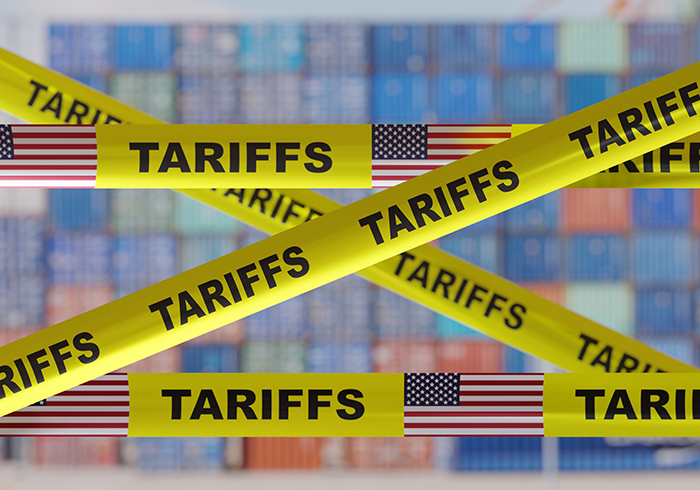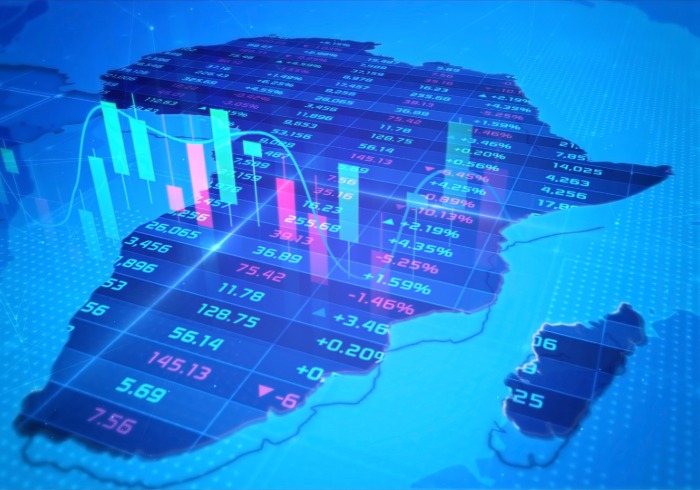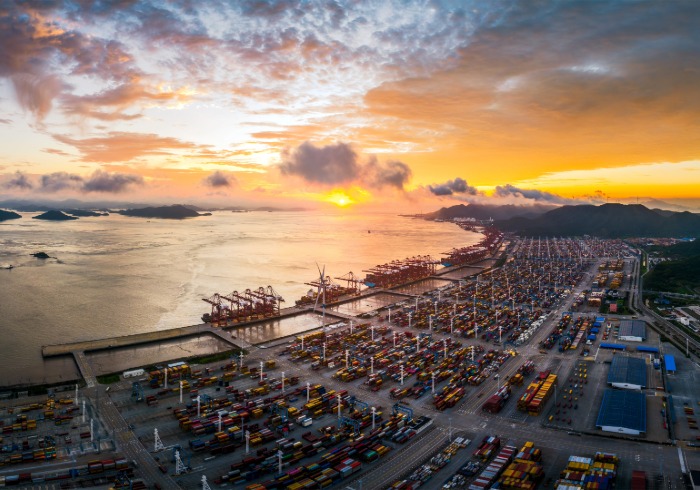Rising uncertainty over US trade policy has driven greater demand for finance, caused inventory levels to spike and pushed more multinationals towards political risk insurance, industry research shows.
US imports soared during the first quarter of this year, as companies rushed to frontload purchases ahead of anticipated tariff hikes on major trading partners. Although import volumes dipped in the second quarter, industry insiders reported another surge in July that appeared to exceed seasonal trends.
With the long-term tariff outlook remaining unpredictable, significant supply chain shifts are largely yet to materialise.
But in the short term, a report published last week by Wells Fargo finds many companies have “decided to be proactive with imports and orders in advance of tariff uncertainty and potential supply chain disruptions”.
The bank’s supply chain finance division reports a 13% increase in goods financed from overseas suppliers during April this year, compared to the same month in 2024. Invoice financing volumes remained steady into June, “suggesting cautious optimism”, it says.
There was also a “notable spike” in inventory levels between March and May this year, which the bank says likely reflects orders placed in anticipation of tariffs.
US companies have already been forced to absorb some cost pressures, Wells Fargo says. Imports are generally subject to a baseline 10% tariff, with higher duties in place for specific markets or sectors, and the report says retailers have been working with suppliers and manufacturers to spread the burden of extra costs.
But companies are also leaning on invoice financing tools to absorb some of these pressures, the report finds.
“Supply chain finance programmes are helping companies lengthen payment terms and preserve liquidity while managing inventory risk, helping suppliers maximise working capital,” it says.
It adds that US importers with agile supply chains are “better positioned to respond to demand spikes or disruptions such as stakeouts, delayed restocking, or higher freight costs if product timing is accelerated”.
Multinational companies are also adapting, with trade disruption, supply chain recalibration and wider macroeconomic pressures pushing demand for political risk insurance, according to London-headquartered broker Howden.
A survey of 500 senior industry figures in the US, UK and France finds that 80% of multinational companies plan to use political risk management tools over the next five years, compared to 68% since 2020.
The largest increase in planned usage is for political risk insurance, at 18%, as multinationals seek additional protection for overseas investments and projects, Howden says in a report published on September 2.
It says rising demand comes “in response to trade disruption and economic shocks”.
Howden adds that average losses for companies with political risk insurance were US$1.4mn lower than for those without, and that cover cuts the cost of capital by around 4% for emerging market projects.
For smaller firms, including those in developing markets reliant on exports to the US, trade disruption presents different challenges.
A report published on September 1 by the UN’s trade unit says the unpredictability of global trade policy means firms face “difficult choices: stockpiling goods, rerouting shipments or paying higher transport costs”.
UN Trade & Development says the impact could prove greater on companies with limited access to financial or logistical support, such as small exporters and those in developing economies.
“While advanced economies saw steady import trends, developing countries faced sharper swings in early 2025 – and least developed countries experienced a delayed but steeper spike later in the year,” it says.
“This underlines how the most vulnerable are also the most exposed. The cost of unpredictability is clear: volatility punishes those least able to absorb it.”







